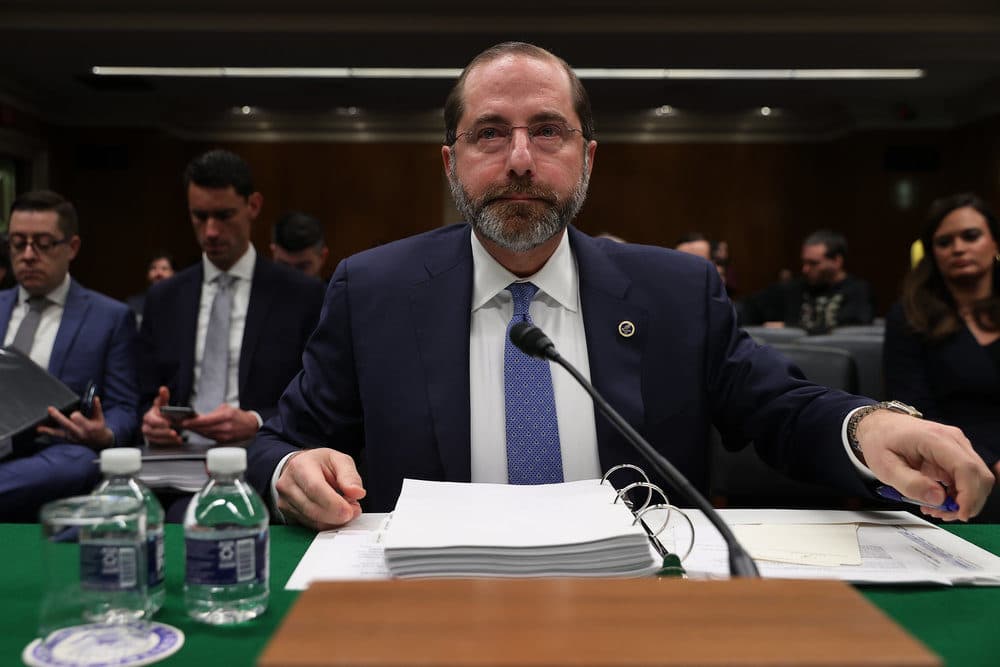Advertisement
As Coronavirus Spreads, So Do Questions About U.S. Preparedness
Resume
Looking for resources on the coronavirus? NPR's Goats and Soda has a guide, here. The CDC has also outlined information about how to prevent and control the spread of coronavirus, here.
As coronavirus continues to spread globally, some are raising questions about whether the U.S. is prepared for an outbreak.
Guests
Jeremy Konyndyk, senior fellow at the Center for Global Development. Former director for foreign disaster assistance for USAID, 2013-2017. (@JeremyKonyndyk)
Dr. Saskia Popescu, infectious disease preventionist and epidemiologist. (@SaskiaPopescu)
Twitter Highlights
From The Reading List
The Washington Post: "It’s time for a ‘no regrets’ approach to coronavirus" — "At the beginning of January, almost no one outside China had heard of the pneumonia-like illness the world now knows as Wuhan coronavirus or, more technically, 2019-nCoV.
"The close of the month saw more than 11,000 cases confirmed, with counts rising daily. The World Health Organization (WHO) has declared a public health emergency of international concern. Hospitals in the epicenter, the Chinese city of Wuhan, are overwhelmed and turning away patients.
"No other country has yet experienced Wuhan-like conditions, but findings released last week by researchers in China concluded that 2019-nCoV may be more contagious, and have higher pandemic potential, than the 2003 SARS outbreak. Many public health experts are now arguing that given the scale of transmission, focus should shift from containment to mitigation — minimizing spread rather than expecting we can fully stop it.
"Faced with this kind of uncertain risk, policymakers must walk a narrow path between aggressive preparedness and counterproductive alarmism. In emergency management, there is a response principle known as 'no regrets': the idea that in an unpredictable crisis, we should proactively over-prepare, rather than wait and see. Importantly, this does not mean recklessly deploying extreme measures; it means judiciously gearing up worst-case preparedness well before a worst-case outcome is certain. This must be the posture as the world confronts 2019-nCoV."
The New York Times: "C.D.C. Officials Warn of Coronavirus Outbreaks in the U.S." — "Federal health officials starkly warned on Tuesday that the new coronavirus will almost certainly spread in the United States, and that hospitals, businesses and schools should begin making preparations.
"'It’s not so much of a question of if this will happen anymore but rather more of a question of exactly when this will happen,' Dr. Nancy Messonnier, director of the National Center for Immunization and Respiratory Diseases, said in a news briefing.
"She said that cities and towns should plan for “social distancing measures,” like dividing school classes into smaller groups of students or closing schools altogether. Meetings and conferences may have to be canceled, she said. Businesses should arrange for employees to work from home."
This program aired on February 27, 2020.

